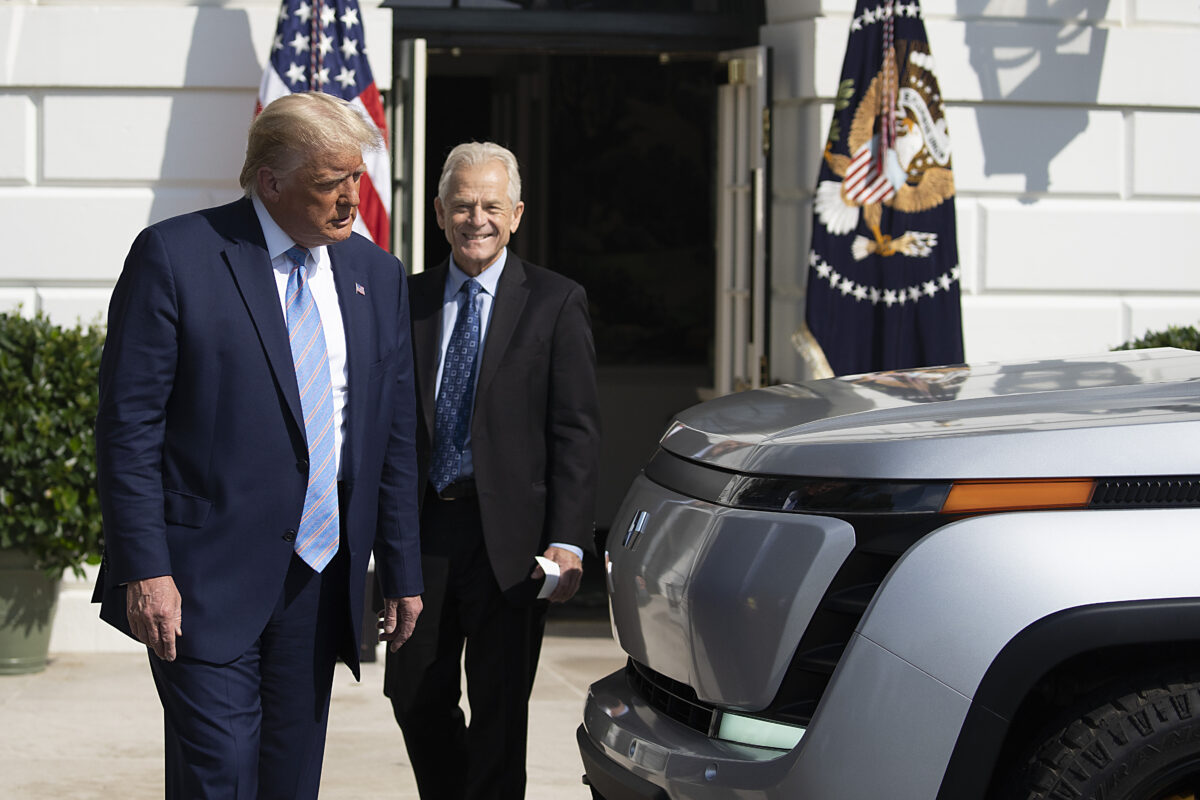
White House Touts Record on Trump’s ‘Buy American’ Plan, Challenges Biden
WASHINGTON—The White House released on Oct. 2 a new report outlining President Donald Trump’s “Buy A..
WASHINGTON—The White House released on Oct. 2 a new report outlining President Donald Trump’s “Buy American, Hire American” policies during his first term to rebuild America’s manufacturing base.
“Over the past four years, this administration has lived by one beautiful phrase–Made in the USA–and two simple rules—Buy American, Hire American,” the report stated.
The policies adopted not only created jobs and prosperity but also strengthened the U.S. manufacturing base and the defense industrial base, White House trade adviser Peter Navarro told reporters during a conference call.
Navarro accused Democratic presidential candidate Joe Biden of plagiarizing Trump’s strategy and said that the president delivered “much more than simply ‘Buy American’ rules in government procurement.”
The White House report came in response to Biden’s $700 billion economic plan, which included his “made in all of America” plan.
Navarro earlier criticized Biden for “blatantly ripping off” the president’s agenda.
Biden promised to invest $400 billion to make additional federal purchases of products made in America, as part of his first-term agenda. His policy proposal relies heavily on federal purchasing power to increase demand and create a domestic market to support U.S. manufacturers. Biden’s campaign states that his strategy would help create at least 5 million new jobs.
During the call, Navarro accused Biden of backing the North American Free Trade Agreement (NAFTA) with Mexico in 1994 and the accession of China into the World Trade Organization in 2001.
The White House report summarizes “five critical dimensions” that comprise Trump’s strategy, which include Buy American government procurement; Hire American initiatives; trade negotiations and tariffs; the defense budget and foreign military sales; and support for America’s maritime industry.
‘Buy American, Hire American’
Trump signed at least 10 executive orders since he took office to support and expand the “Buy American” procurement policies, according to the report. One of the orders, for example, has minimized the use of unnecessary waivers.
Trump also signed an executive order banning countries like China from selling bulk-power equipment to the United States to protect the national electricity grid against foreign threats.
And one of the recent executive orders ensured that government agencies, including the departments of Veterans Affairs, Health and Human Services, and Defense, buy domestically produced essential medicines and medical countermeasures.
Domestic procurement increased from $332 billion in the Obama-Biden years to $419 billion in the Trump-Pence years, a 26 percent jump, according to the report.
In addition, Trump’s “Hire American” policies have reduced visa abuses, expanded apprenticeships, and supported the veterans’ transition to the civilian workforce, the report stated.
Trade Policy and Tariffs
The report also talks about Trump’s trade policies and tariffs, which have been a cornerstone of his economic plan. His rejection of globalism, focus on national security, and retaliation against unfair trade practices marked a fundamental shift in America’s trade policy.
“Going back to Bush-Cheney and through Obama-Biden, we lost over 70,000 factories and millions of manufacturing jobs to the NAFTA and China trade shocks,” Navarro said.
In one of his first acts as president, Trump withdrew the United States from the Trans-Pacific Partnership. He signed the new United States-Mexico-Canada Agreement, which replaced NAFTA. And he also struck trade deals with Japan and South Korea.
Trump has launched a tariff campaign in 2018, mainly targeting China, as part of his strategy to end unfair trade practices against the United States.
Despite skepticism, tariffs “have been enormously successful,” Navarro said.
He stressed the importance of tariffs in countering “the economic aggression of Communist China and its seven deadly sins.”
“These sins range from cyber-intrusions by Chinese government officials to steal American business secrets, intellectual property theft, and forced technology transfer, to the dumping of products below cost into ourRead More – Source

